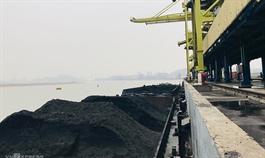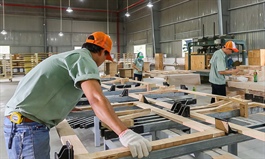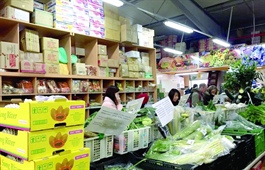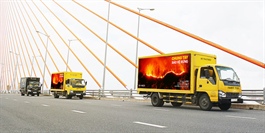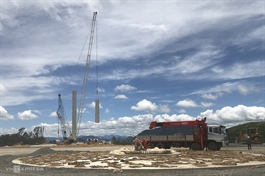Production recovery in Mekong Delta requires appropriate policies
Production recovery in Mekong Delta requires appropriate policies
Appropriate policies are urgently needed to help the Mekong Delta restore farm produce and seafood production and exports once the fourth Covid-19 outbreak in Vietnam is controlled.
Harvesting, distribution difficulties
According to Nguyen Phuong Lam, Director of the Vietnam Chamber of Commerce and Industry’s (VCCI) branch in Can Tho City (VCCI Can Tho), the Covid-19 pandemic is an unpredictable crisis with broad economic and social impacts. In the Mekong Delta, sales of agricultural and aquatic products have suffered most from the pandemic, Lam said.
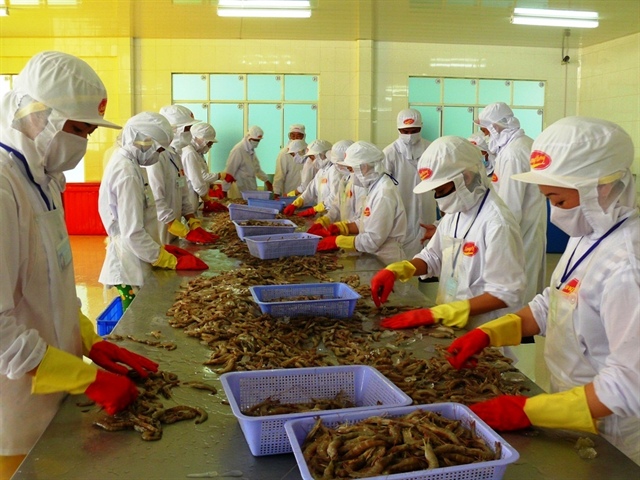
Reconnecting the supply chain of agricultural and aquatic products is crucial for production recovery in the Mekong Delta |
VCCI Can Tho’s data show that in the past three months, more than 10,000 enterprises in the Mekong Delta closed due to the pandemic, piling up farm produce inventories and severely affecting the product supply chain.
Dinh Thi Phuong Khanh, Deputy Director of Long An Province’s Department of Agriculture and Rural Development, said Ho Chi Minh City’s closure of Binh Dien and Hoc Mon wholesale markets and traditional markets has strongly affected sales of agricultural and seafood products, while the withdrawal of traders from the market also greatly affected the supply chain.
Social distancing and pandemic control measures have also slowed harvests and affected product quality. Many businesses had to stop operations because they could not implement the “three-on-the-spot” solution (to arrange for employees to temporarily work, eat and sleep on-site) and/or the “one route, two destinations” solution (arrange one transportation route between accommodations and the workplace), severely affecting the collection and sales of agricultural and seafood products.
According to Nguyen Hoai Nam, Deputy General Secretary of the Vietnam Association of Seafood Exporters and Producers (VASEP), only 30-40 percent of enterprises are capable of resuming production immediately after social distancing ends, whereas it will take longer for the rest to restore operation, Nam said. Production recovery will be severely affected by interrupted supply chains of raw materials, customer loss, and late delivery, among other problems, he said.
Supply chain reconnection
Economist Dr. Tran Huu Hiep attributed the interrupted supply chain of farm produce in the Mekong Delta to social distancing. Provinces and cities need to reconnect supply chains and form logistics centers where goods can be stored, preserved and inspected, and import and export procedures can be implemented, he said.
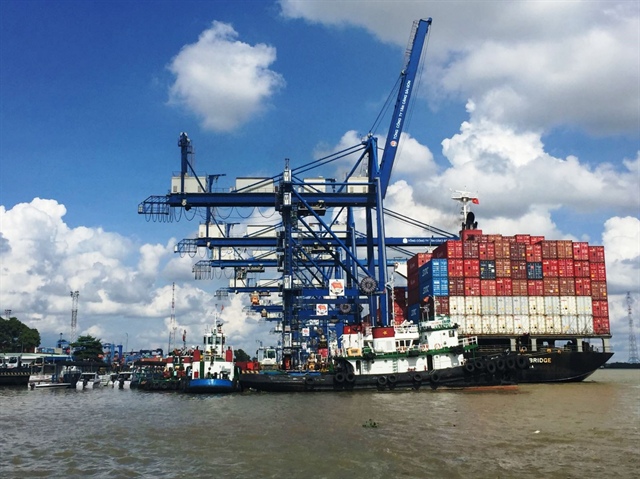
The Mekong Delta should prioritize logistics development to restore production and trade |
With support of ministries and sectors as well as efforts of local authorities, a large amount of agricultural and seafood products of the Mekong Delta were sold despite social distancing. Localities in the region need to agree on pandemic control solutions to pave the way for service groups to harvest agricultural products and for businesses and traders to purchase and transport agricultural and aquatic products.
According to economists, businesses have never been affected as much as they are now, and the situation is much harder for weak enterprises in the Mekong Delta. Agriculture is a major part of the Mekong Delta’s economy, making assistance for this sector a priority.
Pandemic control is the top priority, requiring sufficient worker vaccination. Some businesses facing financial difficulties should receive loan packages to pay their workers and maintain operations. The situation of enterprises needs to be assessed to issue appropriate policies, while priority should be given to investment in infrastructure, logistics, and production technology innovation.









